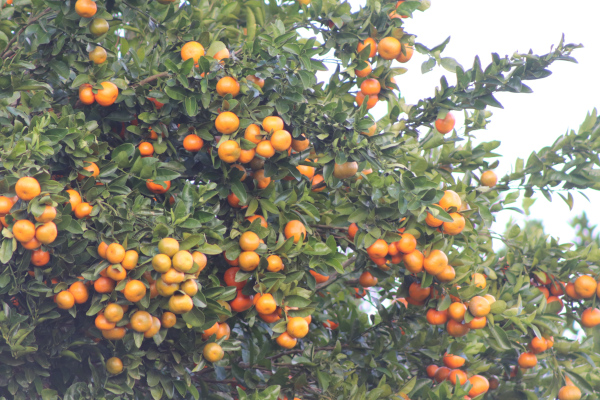In 2019, the Citrus Growers Association launched a R307-million programme to support black growers in partnership with the Jobs Fund, the Land Bank, the Department of Agriculture, AgriSETA, the Lima Rural Development Foundation and FNB. Over the past three years, just over R161.3 million of this funding has been approved and R78.9 million has been distributed, creating 78 permanent and 625 seasonal jobs, and enabling 208 hectares of new trees to be planted.
The “economic transformation of black citrus growers” programme was launched after the association applied to the Jobs Fund for assistance.
It wanted to make funding and technical support available for orchard establishment, expansion and rehabilitation, as well as on-farm development of infrastructure including packhouses, bulk-water supply and irrigation systems.
The Jobs Fund committed R118-million to the project, and the Land Bank agreed to contribute R116 million in loan funding. The Citrus Growers Association contributed R24 million, while the Department of Agriculture and AgriSETA pledged R34 million and R12 million respectively.
The Lima Rural Development Foundation was engaged as project manager and FNB was appointed as the commercial funding partner after a tender process.
The programme differs from similar projects because of the way its support is structured. Beneficiaries receive 36% of their funding as a grant, which helps to reduce their debt and makes it easier to afford repayments. The remaining 64% is a blended loan with an interest rate below the prime lending rate.
Another major focus area has been skills development of beneficiaries, to make them self-reliant, and training in surrounding communities so they can be employed by these farming operations.
To qualify for funding, growers’ assets and operations have to be at least 60% black owned, and enterprises with 100% black ownership are prioritised. Most importantly, applicants must also demonstrate that they will use the funding to create permanent and seasonal job opportunities.
The programme’s rollout in 2020 was affected by the Covid-19 pandemic, and challenges in the citrus industry over the past three years have threatened the sustainability and profitability of farming operations. These include a major hike in input costs and freight rates, load-shedding, and operational issues at ports.
Even so, we are pleased that the programme has disbursed R78.9-million to eight successful black farming operations across the country. The funds have been spent on access roads, land preparation, irrigation infrastructure, farm equipment, vehicles, fencing, packhouse equipment, a de-greening room, generators, a solar system and a substation.
Farmer Buyiswa Ndyenga, from Sikhula Sonke Enterprises near Addo in the Eastern Cape, says the programme helped considerably on their five farms. “The money came at the right time,” she says. “The price of everything went up and citrus farmers were struggling. But the programme’s money helped us plant new orchards and erect a 9km fence to stop the stealing of fruit.”
Luthando Farms near Kirkwood in the Eastern Cape was also a beneficiary. Farmer Nonkwanele Mzamo says a lot of work still lies ahead: “I am passionate about creating jobs. Because of the fund, it is easier to create jobs, and that feels good. Now we need to sustain these jobs.”
The Citrus Growers Association is proud to be part of this groundbreaking programme, which has not only provided a major leg-up for black growers, who usually struggle to obtain loan funding and financial assistance, but has also focused on transferring skills to these farmers as well as creating new jobs in surrounding communities.
The local industry predicts that citrus exports could grow to 260 million (15kg) cartons annually by 2032. With transformation of the industry a key priority over the next 10 years, a target has also been set for black citrus growers: 50-million cartons annually.
We believe the transformation programme will contribute towards achieving this goal by assisting and supporting growers to expand their operations and export their produce to key markets. The deployment of funds under the programme is expected to continue until March 2024, then there will be a two-year monitoring period.
The Citrus Growers Association would like to thank the partners that have made the programme possible: the Jobs Fund, Land Bank, Department of Agriculture, AgriSETA, Lima Rural Development Foundation and FNB.
We look forward to the programme continuing to support the increased participation of black citrus growers in the industry, and in this way contribute towards meaningful and sustainable transformation within the agricultural sector.




